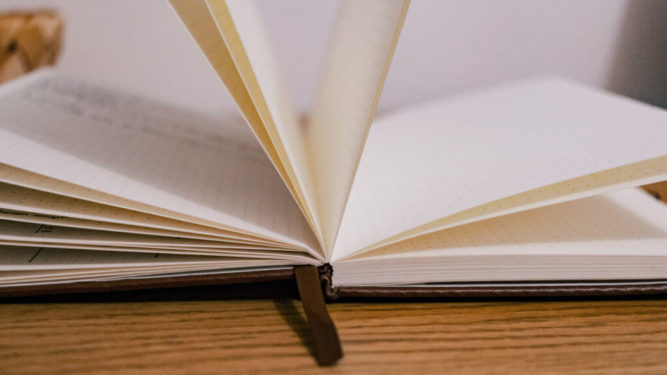TOK Essays 2024. Essay Title 1: Is subjectivity overly celebrated in the arts but unfairly condemned in history?
In the first blog of 6, Edward outlines approaches to answering the first Theory of Knowledge essay question for the May 2024 session.
In this blog we will be examining how to meet the requirements of the first Theory of Knowledge essay in the May 2024 exam series:
Is subjectivity overly celebrated in the arts but unfairly condemned in history? Discuss with reference to the arts and history.
This is an interesting title, particularly for students who are interested in the arts and history, two areas of knowledge that are open to many different perspectives and are excellent for analysis if relevant real life examples can be found.
In any good TOK essay there are a number of prerequisites that are important to ensure you have a good basis to your answer. We will look at these with particular reference to this question and consider some ideas and real life situations that you can use to ensure you are maximising your marks from this task. You should use the structure below to shape your essay. Remember the essay is limited to 1600 words so make sure that you use your allocation wisely. There are 8 paragraphs listed below meaning you should write around 200 words for each one.
The key thing about the TOK essay is that you need to make sure every part of it contributes towards answering the question, whether it is through an example or with direct reference to the question itself. This will give your essay focus and keep you on track.
You should follow these steps to give your essay the required structure:
Introduction: Unpack the title and state your opinion on the question. Initially what are your thoughts?
In your introduction it is essential that you demonstrate that you understand the key terms in the essay and that you outline your answer to the question in the title. This doesn’t mean that you write out a series of key terms and definitions, you should use them in sentences effectively to show your understanding. The definition of the key terms in this essay in a TOK context are below:
Key Terms:
Subjectivity:
Often used as an opposite to objectivity. The way most students understand this term is by acknowledging that when knowledge is influenced by outside factors it is a subject or thing that can change or is open to someone else’s opinion or idea. For example in this case people’s opinions in the Arts are valued and people enjoy and accept discussion and ideas about art work. This means that accepted knowledge is subject to interpretation and is subjective
In History interpretation and subjectivity of knowledge is valued but is far less likely to be accepted without a large amount of supporting evidence. This supporting evidence would need to be objective in nature and not be questionable by outside factors.
This is the most important term in the essay so make sure you have a good understanding of it before you start writing.
(Overly) Celebrated:
This term refers to the idea of emphasising or promoting subjectivity in the Arts. It suggests the idea that without subjectivity, knowledge of the Arts would be limited in scope and the development of the Area of Knowledge would stall. You will need to explore some real life examples of how this has been overly celebrated and why this is the case. Celebration implies that subjectivity is what makes the Arts great!
(Unfairly) Condemned:
This term suggests that the idea of subjectivity is unfit for use in History and that historical knowledge should not be subject to interpretation without evidence. Condemned also suggests that subjectivity should be disregarded completely.
Do note here as well that the words overly and unfairly are very important. You could argue that yes, subjectivity is celebrated in the Arts, and to the correct extent.
Likewise you should consider how fair it is to condemn subjectivity in History, after all, we are taught to interpret sources in our own way when we are studying the subject.
Body paragraph 1: Claim 1 linked to the Arts.
Subjectivity is not overly celebrated in the Arts because…..
This should outline how subjectivity is not celebrated enough in the Arts.
This should now be supported by evidence
This should be a real world example that you have found. An example of something you could discuss here could be the shredding of Banksy’s art work immediately after it was sold at auction. This created an excellent discussion and many different opinions on the incident. Was the subjectivity here celebrated enough?
Your secondary evidence should be a quote from a key thinker on the subject. You should try investigating the following people who are renowned academics on the Arts and can give you great support in your answer: Graham Greene, Lin-Manuel Miranda, Elif Shafak, Ai Weiwei. There will be more relevant journalists and art critics who witnessed the incident who can also give opinions on this.
Body paragraph 2: Counterclaim 1 linked to the Arts 1. Provide example to support
Subjectivity is overly celebrated in the Arts because…..
This should now be supported by evidence
You should now find an example where you think there has been too much celebration of subjectivity and interpretation. (You could even use the example above). Again you can use the thinkers above as well as art critics and journalists who wrote about the example you are discussing.
Body paragraph 3: Implications on The Arts overall. Consider possible links to the core or optional themes.
You should now explore how your ideas may influence or impact the Arts in the future. What would happen if there is more or less subjectivity in the Arts? What will happen to people’s opinions? Will they be as relevant or as important as they have been in the past?
You can also explore links to Knowledge and the Knower and the optional themes that you have studied here.
Remember to answer the main question here as it will give you focus in your answer.
Body paragraph 4: Claim 2 linked to History
Subjectivity is unfairly condemned in History because…..
You should state why subjectivity is judged unfairly in History
This should be supported by evidence. “Facts” may be open for discussion in History when new evidence appears on accepted past events. For example if a new section of the Bayeux Tapestry appeared how would that affect the accepted knowledge of the Battle of Hastings? Can you find an example when new evidence has enabled a new interpretation of the past?
Key thinkers will also have opinions on this idea. Perhaps you could try:
Chimamanda Ngozi Adichie, EH Carr
Body paragraph 5: Counterclaim 2 linked to History
Subjectivity is not unfairly condemned in History because….
This should outline how subjectivity is not unfairly condemned, it should be disregarded because….
This should be supported by evidence. A real life example could be from the near past, such as the conflicts in Russia and Ukraine and Israel and Palestine. The need for accurate information is essential for the welfare of the civilians involved in the conflict and the judgments of the actions of the governments involved. Any information that is subject to question may lead to the wrong conclusions about the next steps to take. Fake news reporting can cause many problems in these instances.
If you can find any quotes from established thinkers this would also benefit your essay.
Body paragraph 6: Implications on History overall. Consider possible links to the core or optional themes.
If subjectivity was to be accepted more readily in History what impact would that have on the nature of the subject and the knowledge that is accepted in the field? How would it affect different knowers and how they interpret past events?
Overall conclusion:
Summarise your main perspectives and explain how your findings implicate the real world and overall areas of knowledge you have chosen. It is essential that you answer the question in this last paragraph. This demands a yes or no answer so give one, with a justification.
Final Thoughts:
The highest scoring essays in TOK do the following:
- They are insightful, convincing, accomplished and lucid (from the markscheme)
- They demonstrate how TOK appears in the real world by using real world examples.
- They are supported by academic thinkers.
- They answer the question accurately.
Thank you for reading. Read the second blog here!
Good luck with your essay!



really liked your inputs